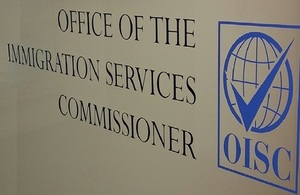JRCM Practice Note revised
Changes to JRCM Practice Note will affect how Advisers will interact with the Upper Tribunal going forward.

Following discussions with the Upper Tribunal (Immigration and Asylum Chamber) and a recent court judgment, the OISC has amended its current JRCM Practice Note, removing Section 2 to ensure that advisers do not inadvertently conduct litigation and contravene the Legal Services Act 2007
Since it was updated last year, a number of concerns have been raised, leading the OISC to hold discussions with the Upper Tribunal.
The Upper Tribunal handles appeals against decisions of the First-tier Tribunal (Immigration and Asylum Chamber) and handles most judicial review claims made against a Home Office decision.
Simultaneously, the issue of what work is considered ‘conducting litigation’ was explored in the case of Baxter v Doble & Anor [2023] EWHC 484 (KB).
In paragraph 208 and 211 of the judgement, the Hon. Mr Justice Cavanagh states:
the court should look at the entirety of the activities undertaken by the [person] to assist their client and then decide whether, taken in the round, they amount to the conduct of litigation. To do otherwise would be to lose sight of the context in which things are being done, and would lead to the risk of a misleading impression being gained. It would also run the risk of form being prioritised over substance.
In my judgment, the answer is yes. The Respondents did everything for Mr Persey in relation to the proceedings that a solicitor or other authorised person would have done. They gave full-service assistance to Mr Persey, including drafting all of the documents required to comply with formal requirements, giving instructions to counsel, making a payment to court, corresponding with the other side, and ensuring that all procedural steps complied with the CPR. Someone must have conducted this litigation, and it would be wholly artificial to say that Mr Persey did it himself, albeit with support and guidance from the Respondents. This would be to under-state their involvement. They conducted the litigation for him. Put another way, they were “prosecuting” the proceedings for him. The Respondents’ role went far beyond clerical or mechanical assistance. As the Court of Appeal said in Ndole, it is a question of fact and degree whether an advisor or consultant crossed onto the wrong side of the line. On the facts of this case, and again applying the criminal standard, I conclude that the Respondents did cross the line and that their involvement in the proceedings, taken as a whole, amounted to the conduct of litigation.
In light of this judgement and the recent discussions with the Upper Tribunal, the OISC has taken the action of removing Section 2 of the guidance.
This means that the OISC will now consider any work undertaken on a case after proceedings have been issued at the Upper Tribunal as conducting litigation and therefore not authorised under the JRCM category. After a judicial review claim form has been served, OISC advisers will only be permitted to liaise with the clients and counsel.
If any Level 3 JRCM advisers have any further queries in relation to these changes, please contact info@oisc.gov.uk.